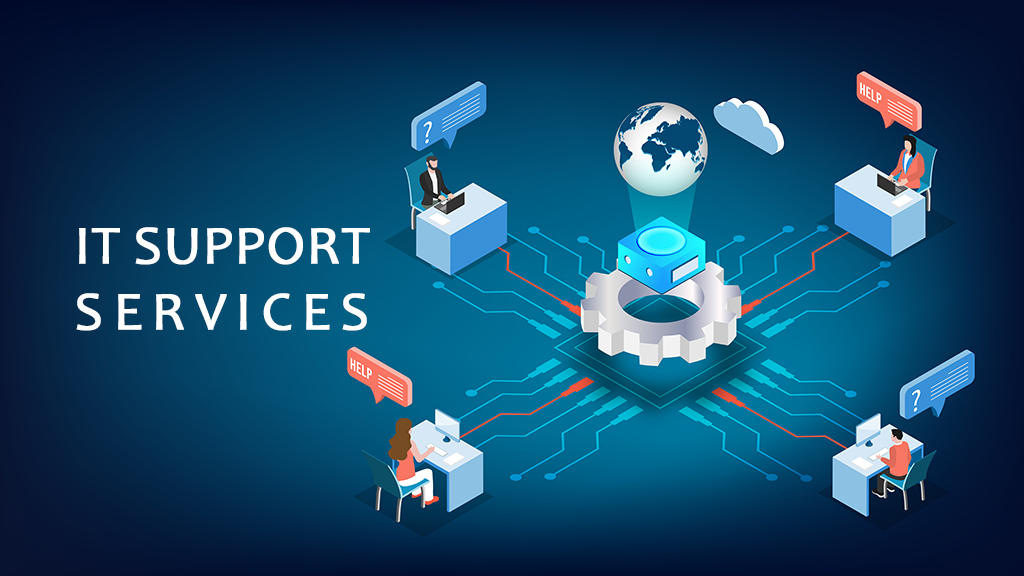
As you start searching for an IT support provider, you’re likely to encounter a multitude of options, making it overwhelming to choose the right one. You’ve got specific pain points to address, business goals to meet, and technology infrastructure to consider. Where do you even begin? By understanding your IT needs, you’ll set yourself up for success. But that’s just the starting point. You’ll want to dig deeper to ensure the provider you choose has the expertise, service level agreements, and industry certifications that align with your business requirements. But what exactly should you be looking for?
Define Your IT Support Needs
With your business relying heavily on technology, identifying your IT support needs is crucial to finding the right partner.
You can’t afford to settle for mediocre support, as it can lead to costly downtime and negatively impact your bottom line.
Start by taking stock of your current IT infrastructure.
What systems, software, and hardware do you use? Are there any specific pain points or areas where you’re experiencing frequent issues?
Make a list of your IT-related challenges and prioritize them.
This will help you identify the type of support you need and what you’re willing to pay for.
Consider your short-term and long-term goals.
Are you planning to expand, upgrade, or migrate to new systems?
Do you need support for remote workers or multiple locations?
Having a clear understanding of your current and future needs will enable you to find an IT support provider that can grow with your business.
Assess the Provider’s Expertise
You’ve narrowed down your IT support needs, now it’s time to evaluate potential providers.
Assessing their expertise is crucial to ensuring they can meet your requirements. Start by reviewing their certifications, such as CompTIA A+ or Cisco CCNA.
Check if they’ve experience working with businesses similar to yours, including industry-specific knowledge. Look for case studies or testimonials from previous clients to gauge their success rates.
Next, examine their technical capabilities.
Do they’ve expertise in the specific technologies you use, such as cloud services or virtualization? Are they familiar with the latest trends and advancements in IT? You want a provider who can’t only fix current issues but also advise on future improvements.
Evaluate Their Service Level Agreement
Most IT support providers will tout their expertise, but it’s their Service Level Agreement (SLA) that truly separates the reliable from the rest.
The SLA outlines the provider’s commitment to resolving issues, responding to requests, and delivering IT Computer Support within specific timeframes.
When evaluating a potential provider’s SLA, you’ll want to look for specific details on response times, resolution targets, and communication protocols.
Ask yourself: What’re their guaranteed response times for critical issues? How will they prioritize and escalate incidents? What kind of reporting and analytics will they provide to ensure transparency and accountability?
Be wary of providers with vague or overly broad SLAs, as this can indicate a lack of commitment to delivering quality service.
A well-defined SLA demonstrates a provider’s willingness to put their promises in writing and be held accountable for their performance.
Check for Industry Certifications
Beyond the SLA, another crucial aspect to examine is the provider’s industry certifications.
You want to ensure that your IT support provider has the necessary expertise and knowledge to handle your specific needs. Industry certifications, such as CompTIA A+, Cisco CCNA, or Microsoft MCSA, demonstrate that the provider’s technicians have undergone rigorous training and testing to prove their skills.
Look for certifications that align with your organization’s technology infrastructure and needs.
When checking for certifications, don’t just take the provider’s word for it.
Ask to see the actual certifications and verify them with the issuing organization. This ensures that the certifications are up-to-date and valid.
You should also check if the provider’s certifications cover specific areas, such as security, cloud computing, or virtualization, which are critical to your business operations.
Ask About Their Response Time
When evaluating an IT support provider, it’s not just about their technical expertise, but also their ability to respond promptly to your needs.
You want to know that when you encounter an issue, you can get help quickly. Ask potential providers about their response time, which is typically measured by their initial response time and resolution time.
Initial response time refers to how long it takes for them to acknowledge your issue, while resolution time is how long it takes to resolve the issue.
Be specific with your questions. Ask what their average response time is, what their peak response time is, and what their worst-case scenario response time is.
You should also ask about their communication channels – do they offer phone, email, or chat support? Are these channels available 24/7 or only during business hours?
Knowing this information will help you determine if their response time aligns with your business needs. Don’t settle for a provider that can’t meet your response time requirements, as it can impact your productivity and bottom line.
Conclusion
By following these steps, you’ve got a solid framework to choose the right IT support provider for your business. You’ve defined your needs, assessed their expertise, evaluated their service level agreement, checked for industry certifications, and asked about their response time. Now, you’re equipped to make an informed decision, ensuring you get the support you need to drive your business forward.
